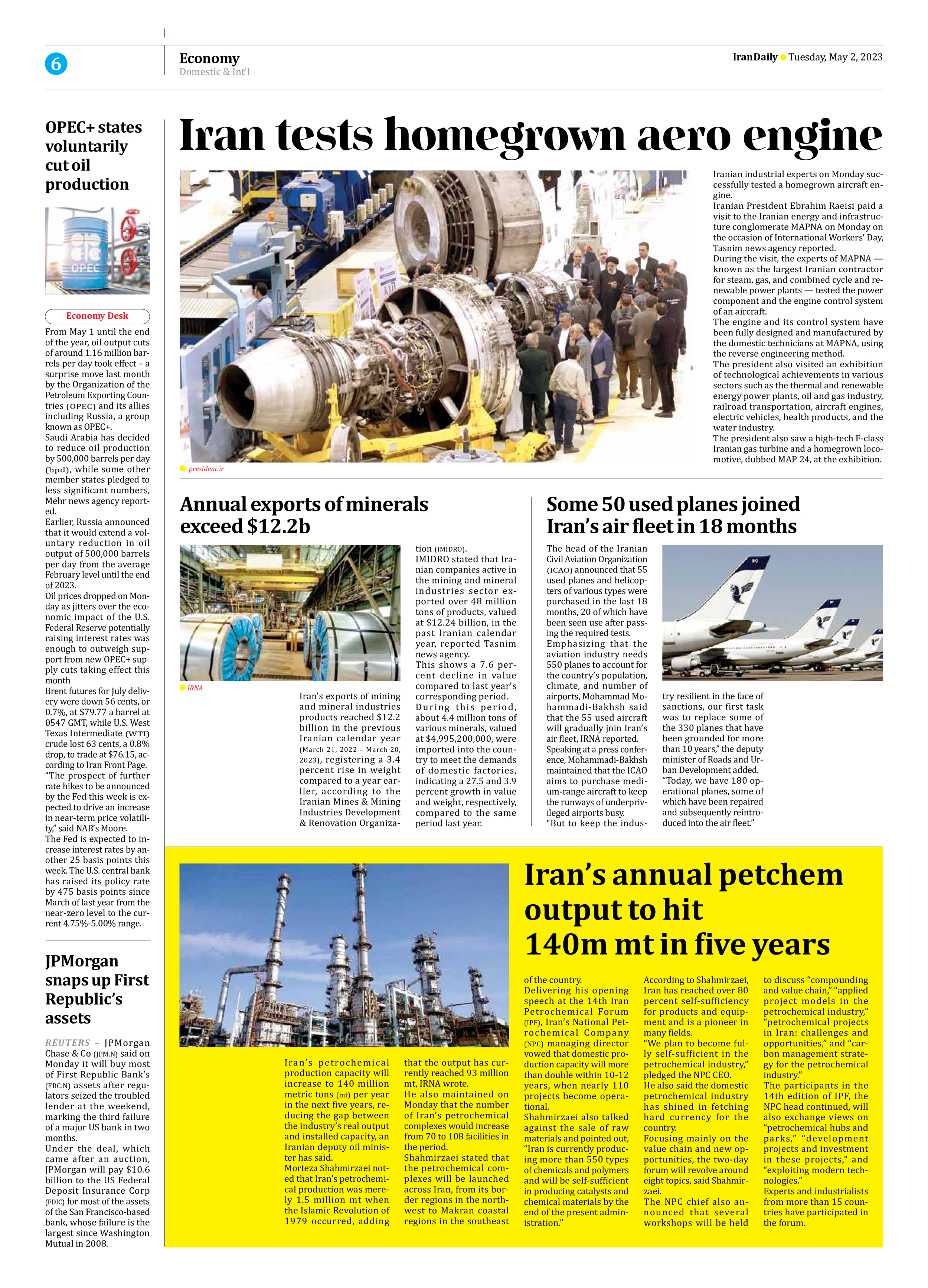
Iran’s annual petchem output to hit 140m mt in five years
Iran’s petrochemical production capacity will increase to 140 million metric tons (mt) per year in the next five years, reducing the gap between the industry’s real output and installed capacity, an Iranian deputy oil minister has said.
Morteza Shahmirzaei noted that Iran’s petrochemical production was merely 1.5 million mt when the Islamic Revolution of 1979 occurred, adding that the output has currently reached 93 million mt, IRNA wrote.
He also maintained on Monday that the number of Iran’s petrochemical complexes would increase from 70 to 108 facilities in the period.
Shahmirzaei stated that the petrochemical complexes will be launched across Iran, from its border regions in the northwest to Makran coastal regions in the southeast of the country.
Delivering his opening speech at the 14th Iran Petrochemical Forum (IPF), Iran’s National Petrochemical Company (NPC) managing director vowed that domestic production capacity will more than double within 10-12 years, when nearly 110 projects become operational.
Shahmirzaei also talked against the sale of raw materials and pointed out, “Iran is currently producing more than 550 types of chemicals and polymers and will be self-sufficient in producing catalysts and chemical materials by the end of the present administration.”
According to Shahmirzaei, Iran has reached over 80 percent self-sufficiency for products and equipment and is a pioneer in many fields.
“We plan to become fully self-sufficient in the petrochemical industry,” pledged the NPC CEO.
He also said the domestic petrochemical industry has shined in fetching hard currency for the country.
Focusing mainly on the value chain and new opportunities, the two-day forum will revolve around eight topics, said Shahmirzaei.
The NPC chief also announced that several workshops will be held to discuss “compounding and value chain,” “applied project models in the petrochemical industry,” “petrochemical projects in Iran: challenges and opportunities,” and “carbon management strategy for the petrochemical industry.”
The participants in the 14th edition of IPF, the NPC head continued, will also exchange views on “petrochemical hubs and parks,” “development projects and investment in these projects,” and “exploiting modern technologies.”
Experts and industrialists from more than 15 countries have participated in the forum.







